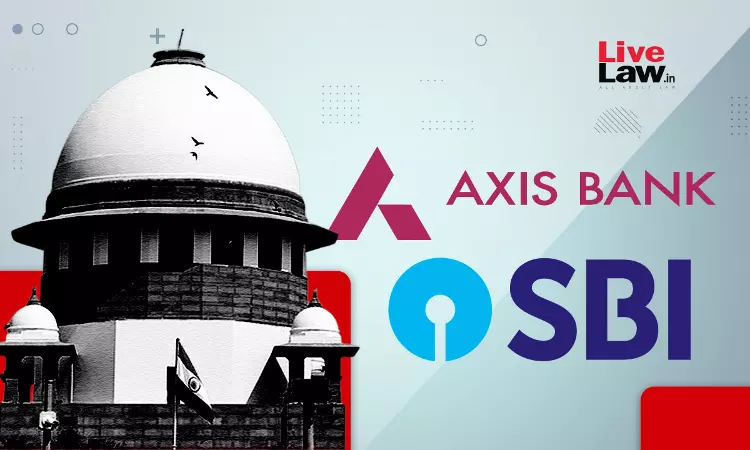Supreme Court Dismisses Axis Bank's Appeal, Upholds Condonation of Delay In CIRP By SBI Against Corporate Debtor
Suraj Parmar
12 Sept 2023 3:31 PM IST

Next Story
12 Sept 2023 3:31 PM IST
The Supreme Court today dismissed an appeal by Axis Bank Limited(appellant), thereby affirming the condonation of delay in initiating the Corporate Insolvency Resolution Process (CIRP) by the State Bank of India (SBI) against a corporate debtor under Section 7 of Insolvency and Bankruptcy Code(IBC), 2016.The Court observed, “For all reasons recorded above, no merit in appeal the same...
